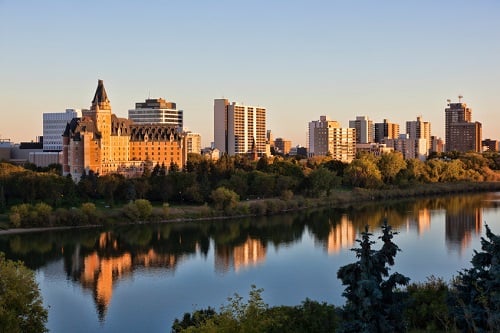Perspectives differ over the province’s plan to amalgamate its 12 existing health regions

The government of Saskatchewan is shaking things up with a move to create a single provincial health authority to oversee all of its 12 health regions. Though the process is aimed toward improved administration and less duplication, some question whether it can actually succeed, reports CBC News.
Provincial Health Minister Jim Reiter is focusing on a steady-as-she-goes approach, insisting that the province will not repeat Alberta’s mistake of amalgamating health regions too rapidly before management structures were fully in place.
“We want to do this quickly but it is important to do this right,” he said, adding that the government will accommodate recommendations from the three-person advisory panel appointed in August to review the current structure of healthcare administration.
Aside from establishing a single health authority, the panel prescribed enhanced consolidation of services, ranging from diagnostic tests to emergency medical service deployment. The government has emphasized that it is not centralizing services, but is rather consolidating them for patients to receive the same or better care.
Reiter said the province will work with unions throughout the consolidation process. “The existing contracts, obviously, are going to be respected,” he said.
Gordon Campbell, president of the Canadian Union of Public Employees health care council, however, expressed doubt that the overhaul will succeed to the benefit of all. “Today's announcement creates more uncertainty for frontline workers and for rural communities across Saskatchewan,” he said in a statement. “It is also questionable that any cost savings will result.”
While Campbell is skeptical about cost savings, NDP health critic Danielle Chartier is concerned about cuts. “When the Saskatchewan Party talks about consolidation, everyone knows they mean cuts — cuts to health care centres, cuts to frontline health care workers, and cuts to the care Saskatchewan people deserve,” she said, denouncing the plan as a betrayal of the Saskatchewan Party’s promises in the last election.
Reiter, for his part, remained non-committal on the financial impact of the move. While the process will result in financial savings, he said that it’s not currently possible to pin down a specific dollar amount. He also stressed that while the announced shift to a single health authority is separate from the government’s efforts to pare a billion-dollar deficit, it only makes sense that savings will result as accounting, information technology, and other non-medical services are consolidated.
Still, such savings are not likely to be realized soon: the first year will likely usher in higher costs from severance payments, though Reiter could not offer more information about job losses or changes.
Related stories:
Saskatchewan slammed over policy allowing private MRI queue-jumping
Is private, for-profit care making Canada’s health system inefficient?
Provincial Health Minister Jim Reiter is focusing on a steady-as-she-goes approach, insisting that the province will not repeat Alberta’s mistake of amalgamating health regions too rapidly before management structures were fully in place.
“We want to do this quickly but it is important to do this right,” he said, adding that the government will accommodate recommendations from the three-person advisory panel appointed in August to review the current structure of healthcare administration.
Aside from establishing a single health authority, the panel prescribed enhanced consolidation of services, ranging from diagnostic tests to emergency medical service deployment. The government has emphasized that it is not centralizing services, but is rather consolidating them for patients to receive the same or better care.
Reiter said the province will work with unions throughout the consolidation process. “The existing contracts, obviously, are going to be respected,” he said.
Gordon Campbell, president of the Canadian Union of Public Employees health care council, however, expressed doubt that the overhaul will succeed to the benefit of all. “Today's announcement creates more uncertainty for frontline workers and for rural communities across Saskatchewan,” he said in a statement. “It is also questionable that any cost savings will result.”
While Campbell is skeptical about cost savings, NDP health critic Danielle Chartier is concerned about cuts. “When the Saskatchewan Party talks about consolidation, everyone knows they mean cuts — cuts to health care centres, cuts to frontline health care workers, and cuts to the care Saskatchewan people deserve,” she said, denouncing the plan as a betrayal of the Saskatchewan Party’s promises in the last election.
Reiter, for his part, remained non-committal on the financial impact of the move. While the process will result in financial savings, he said that it’s not currently possible to pin down a specific dollar amount. He also stressed that while the announced shift to a single health authority is separate from the government’s efforts to pare a billion-dollar deficit, it only makes sense that savings will result as accounting, information technology, and other non-medical services are consolidated.
Still, such savings are not likely to be realized soon: the first year will likely usher in higher costs from severance payments, though Reiter could not offer more information about job losses or changes.
Related stories:
Saskatchewan slammed over policy allowing private MRI queue-jumping
Is private, for-profit care making Canada’s health system inefficient?



